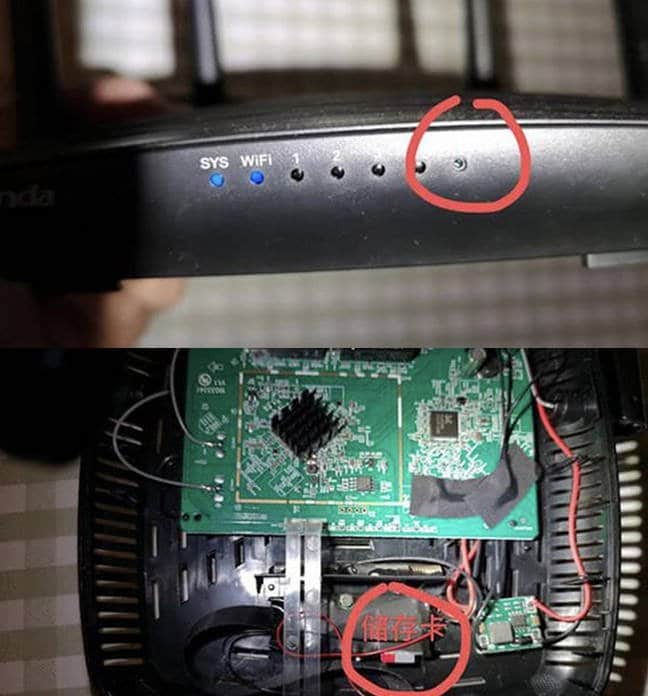Airbnb “superhost” gets 20 days in prison after hidden camera uncovered
Most will know how Airbnb works. Someone wants to turn their house or apartment into a “BnB” for hire, so they list it on Airbnb. Someone looking for a nice (or cheap) stay snaps it up for a given price and period of time. Both communicate through Airbnb to sort out the logistics (namely, what’s the Wi-Fi password?) and once the stay is over, the host and hosted leave each other a review.
Simple, and effective, and a great way to avoid often expensive hotel fees. But of course it relies on the public interacting with each other to sort things out without being, you know, super creepy. And with Airbnb, that’s where things can often go really wrong.
A cyber security enthusiast from China found that out recently. Identified by local press as Yunfei, this security professional hired an apartment in Qingdao in China. Being the super cautious professional that she was, Yunfei went about her typical checking in routine of scanning the apartment for covert recording devices, because, well, you never know.
Sponsored Content. Continued below...
We expect she was glad she did. Because a recording device was exactly what she found, buried inside the Internet router of the apartment. First, she discovered several motion sensors dotted around the property, which should be enough to have anyone on edge. It was only when she began digging deeper into the apartments furnishing when she discovered that the router had signs that it has been tampered with. See image below.

Inside the router, a memory card. And the chassis of the router had an extra hole next to the usual four port lights. Which was enough for Yunfei to leave the apartment and call the police, who arrived at the apartment to confiscate the spying equipment.
As is often the case with Airbnb, Yunfei had never met her host in person since they communicated exclusively online, but she did discover that shortly after the incident, he was sentenced 20 days in prison.
The incident echoes a similar case from earlier in the year, when a family visiting Ireland discovered a camera hidden in a smoke detector broadcasting a live stream. In that case, the camera was discovered after the visiting infosec-aware family ran a scan on the Wi-Fi network for devices communicating with the house Wi-Fi router.
Of course, hidden cameras are a big no-no in the Airbnb’s terms of service, but since the company doesn’t manually check properties, it is still a possibility, albeit – Airbnb claims – a small one. To be fair, incidents of this occurring do appear to be infrequent, especially given the rise in popularity of sites like Airbnb.
Sponsored Content. Continued below...
However if you are concerned or want to be extra cautious, there are a number of things you can do to check for cameras, ranging from quick checks to in-depth digging. If you do feel compelled to check, lightbulbs, smoke detectors, electronic devices like routers, alarm clocks or any devices or objects that look out of place or would provide a good field of view would be the best places to start.
Camera lens’ can be small, and hard to spot, especially in dark places. Shining a bright light (for example the flashlight feature that most smartphones have these days) to look for the reflection of a camera lens can often do the trick. And if you’re not sure but want to play it safe, placing stickers or other objects over holes or gaps can obstruct a potential camera’s field of view.
For those willing to invest, a number of scanners, particularly RF (radio frequency) scanners can spot any devices broadcasting through radio frequencies. You can also get devices that can scan Wi-Fi networks to reveal any devices connected to it (if a video camera streams footage, it needs to connect to the Internet.)
Andrew Barker, the infosec expert that identified the camera in Ireland, has some more in-depth tips in a blog post here.
Continued below...
Thanks for reading, we hope this article helped, but before you leave us for greener pastures, please help us out.
We're hoping to be totally ad-free by 2025 - after all, no one likes online adverts, and all they do is get in the way and slow everything down. But of course we still have fees and costs to pay, so please, please consider becoming a Facebook supporter! It costs only 0.99p (~$1.30) a month (you can stop at any time) and ensures we can still keep posting Cybersecurity themed content to help keep our communities safe and scam-free. You can subscribe here
Remember, we're active on social media - so follow us on Facebook, Bluesky, Instagram and X
